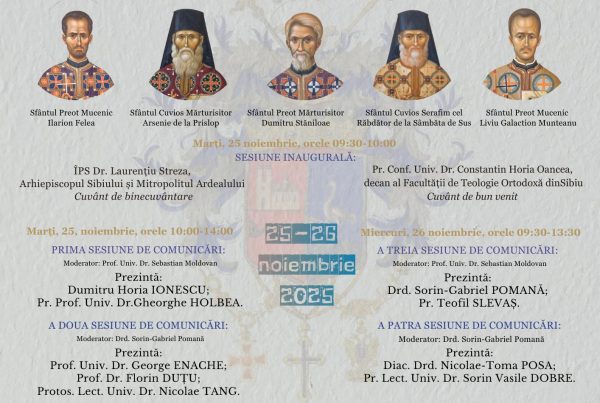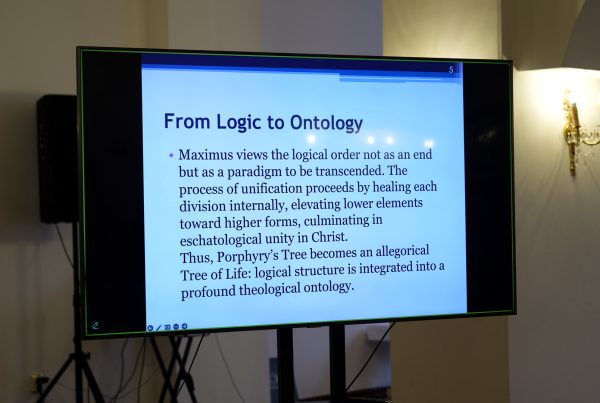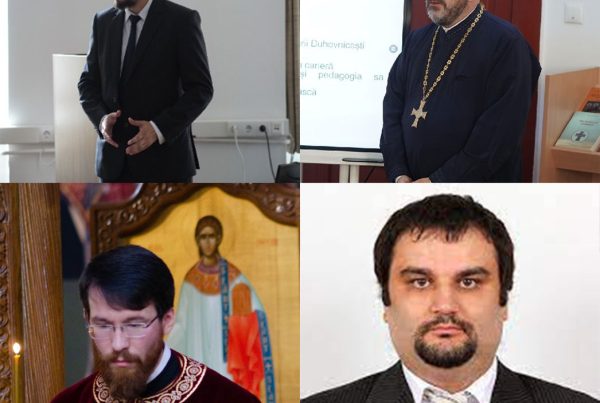Arhiepiscopia Ortodoxa Romana a Sibiului Institutul pentru studii sud-est Europene al Academiei Romane Universitatea „Lucian Blaga” din Sibiu Facultatea de Teologie „Sfantul Andrei Saguna”
Epoca Brâncovenilor în context Sud-Est european: Biserică, Societate, Geopolitică Simpozion internaţional

Locatie: Sibiu, Romania; Data: 12-15 Iunie 2014; Organizatori: Lect. Dr. Ioan Ovidiu Abrudan, Pf. Prof. Dr. Nicolae Chifăr Contact: abrudanioanovidiu@yahoo.com, chifar_n2002@yahoo.com;
În perioada 12-14 iunie 2014, Facultatea de Teologie din Sibiu organizează, în colaborare cu Institutul de Studii Sud-Est Europene al Academiei Române,un simpozion internaţional cu tema: „Epoca Brâncovenilor în context Sud-Est european: Biserică, Societate, Geopolitică”.
Manifestarea marchează tricentenarul morţii lui Constantin Brâncoveanu, personalitatea care şi-a împrumutat numele unei epoci din istoria civilizaţiei româneşti, şi este o bună ocazie de a evaluaprogresul ştiinţific înregistrat de la ultima comemorare a domnitorului martir, petrecută în 1988, într-un context politic apăsător, când regimul opresiv comunist din România bloca orice colaborare internaţională pe asemenea subiecte.
La urcarea pe tron a lui Constantin Brâncovenu, în 1688,Ţară Românească era prinsă în încleştarea imperiilor care-şi disputau hegemonia asupra acestei părţi a continentului. Cu toate acestea a reuşit să asigure pentru supuşii săi un răgaz de linişte şi de stabilitate, prin menţinerea relaţiilor tradiţionale cu Sublima Poartă şi prieteneşti cu Habsburgii şi cu Imperiul lui Petru cel Mare. S-a afirmat despre Brâncoveanu că a fost primul domnitor român „care a aplicat în mod conştient, în politica externă europenizarea, ceea ce presupune o strategie a păcii, întemeiată pe negocieri, relaţii personale, corespondenţă secretă, stimularea relaţiilor culturale şi artistice, receptivitate şi asimilare a ceea ce se numea spirit european”.
Considerăm că e binevenită reluarea discuţiilor, în contextul, de această dată, a unui prezent european, asupra rolului complex asumat de acest personaj eroic şi admirabil pe scena politicii Imperiului otoman şi în jocul destinelor ţării sale. Dorim să încurajăm contribuţiile la cunoaşterea personalităţii lui Constantin Brâncoveanu, prin evidenţierea impactului pe care politica sa l-a avut în lumea ortodoxă şi în regiunile est-mediteraneene şi pontice, dar şi din perspectiva altor domenii de studiu: istorie bisericească, istoria artei şi arhitecturii, a cultului, a ştiinţei şi educaţiei, a iconografiei şi lista poate rămâne deschisă.
Desfăşurarea manifestării la Sibiu e justificată prin semnificaţia acestei zone geografice pentru relevanţa naţională a personalităţii şi epocii marelui voievod muntean. Ambianţa pe care o putem oferi reuniunii academice – inclusiv prin iconostasul din capela facultăţii, ale cărui icoane au fost atribuite vestitului Constantinos, zugravul de curte al Cantacuzinilor şi autorul frescelor ctitoriei brâncoveneşti de la Hurezi – poate stimula un dialog viu între ştiinţă şi credinţă, cultură şi artă, tradiţie şi actualitate. În ultima zi de desfăşurare a simpozionului, participanţii vor avea ocazia să-şi continue dialogul pe parcursul vizitei la câteva monumente bisericeşti din zona Sibiului şi a Făgăraşului, ilustrative pentru maniera în care a fost difuzat în spaţiul culturii şi spiritualităţii ortodoxe transilvănene, stilul artistic al epocii brâncoveneşti.
ENGLISH LANGUAGE
Romanian Orthodox Archbishopric of Sibiu The Institute for South-East European Studies of the RomanianAcademy „Lucian Blaga” University of Sibiu „St. Andrei Şaguna” Faculty of Theology
The Age of the Brancoveanu in South-East European Context: Church, Society, Geopolitics
Location: Sibiu, Romania; Date: 12-15 June 2014; Organisers: Lect. Dr. Ioan Ovidiu Abrudan, Pf. Prof. Dr. Nicolae Chifăr Contact: abrudanioanovidiu@yahoo.com, chifar_n2002@yahoo.com;
In the period 12-15 June 2014, the Faculty of Theology in Sibiu organizes, in collaboration with the Institute for South-East European Studies of the Romanian Academy, a symposium on the theme: „The Age of the Brâncoveanu in South-East European Context: Church, Society, Geopolitics”.
The symposium is organized for the tercentenary of the death of Constantine Brancoveanu, and is a good occasion to evaluate the scientific progress since the last commemoration of the martyr prince whose name came to be identified with an era in the history of Romanian civilization, which occurred in a gloomy political context – in 1988, when oppression by the Communist Regime in Romania blocked any international collaboration on such subjects.
At Brancoveanu’s enthronement in 1688, Wallachia was the crossroad of competing empires. Nevertheless, Brâncoveanu managed to use the context in his favor and gave those whom he ruled a respite of tranquility and stability, by maintaining the relations with the Sublime Porte and friendly alliances with the Habsburgs and the Empire of Peter the Great. It has been argued that Brâncoveanu was the first Romanian ruler „who consciously adopted Europeanization in his external politics, which involved a strategy of peace, based on negotiations, personal affiliations, secret correspondence, the stimulation of cultural and artistic relations, receptivity and assimilation of what used to be called the European spirit”.
We believe it is time to resume the discussion, this time from the perspective of a European present, on the complex role assumed by a heroic and admirable character on the scene of the Ottoman Empire’s politics and within the context of his country’s destiny. We would like to encourage contributions on the personality of Constantine Brâncoveanu, on the relevant historical processes of his epoch and the impact of his reign in the Orthodox World, the Eastern Mediterranean and pontic regions and on any domain of cultural creativity: Church history, art history, history of architecture, liturgy, scholarship and education, iconography, hierotopy, and the list remains open.
The choice of Sibiu for the symposium’s convent is also justified by the significance of this geographic area for the evaluation of Brâncoveanu’s international influence. The ambiance that we can provide for this academic meeting – including the iconostasis in the Chapel of the Faculty of Theology, with paintings attributed to the well-known iconographer Constantinos, the painter at the court of the Cantacuzenos princes and the author of frescoes in the Hurezi monastery, founded by Brâncoveanu himself – might stimulate a lively dialogue between history, religion, culture and art. For two days following the symposium you will have the opportunity to visit several church monuments around Sibiu, Făgăraş and in the district of Vâlcea, illustrative for the artistic style of Brâncoveanu’s culture and spirituality.



